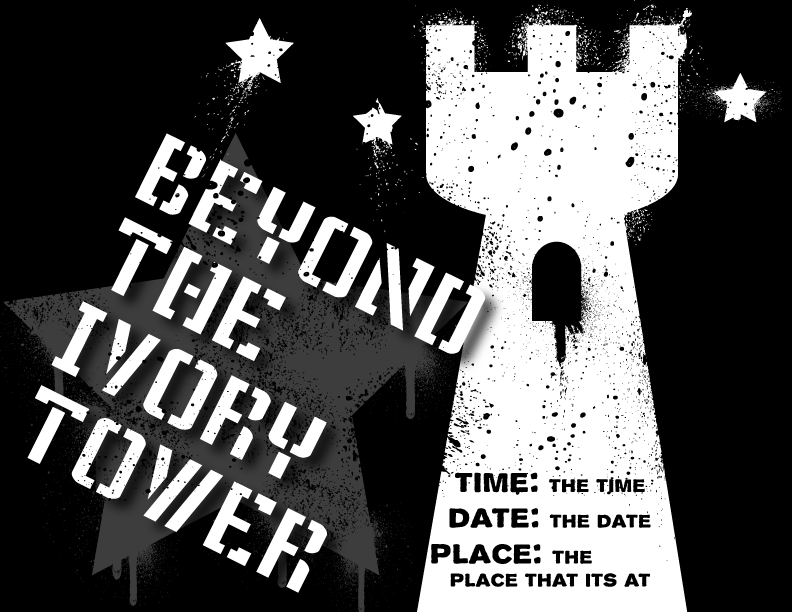“So, what do you do for a living?”
It’s a question that makes me cringe. “I’m a Ph.D. student in comparative literature,” I say. And even though this admission is almost always received positively, I’m still hesitant to tell people.
But now, after two years of study at University of Toronto’s Centre for Comparative Literature, I’ve been rethinking this attitude. Why should I be reluctant to tell people what I do? I wouldn’t respond so timidly if I were studying law, or medicine, or engineering. Why should comparative literature – or any discipline in the humanities – be so different?
For many the answer is obvious. Wherever you go, there is a huge demand for doctors, lawyers and engineers. But humanities scholars? What do they contribute? Even though thousands of undergraduate students continue to major in the liberal arts each year, many in society question the value of an education which grants knowledge and critical-thinking skills but little practical vocational training.
Another reason, perhaps, for society’s skepticism toward academics is the archetypical image of the university as an “ivory tower” whose existence has little bearing on the world outside.
After several years spent studying and working in various educational institutions, I’ve come to accept the validity of both these concerns. When I started my undergraduate education at Sarah Lawrence College, a liberal arts school in New York, I knew that I was choosing a rough road. Five years after graduation, many of my old friends are deeply in debt, shuffling from job to job, and still unsure of their place in society.
And after two years of advanced graduate study, in which I occasionally have read opaque, jargon-filled academic articles, I too must question the value of ideas that don’t make it outside of the ivy-covered walls and into the real world.
But all these doubts dissipate whenever I enter a classroom full of undergraduate students.
As a teaching assistant for a class entitled “Ancient and Medieval Literary Modes,” I spent this past year leading 25-person discussions on some of the great works of the literary canon: Homer’s Iliad, Virgil’s Aeneid, and Dante’s Inferno, among others. As we discussed such topics as the meaning of honour, the nature of familial love, and the age-old question of what constitutes a good life, I dared to hope that my students’ insights would make their way beyond those classroom walls.
I chose to study the humanities because I wanted answers. I wanted to know why people who seem honest turn out to be liars. Why war, violence and injustice persist in every part of the world. I wanted to know how it is that people have overcome the most terrible conditions to fight for human dignity. And I wanted to know how, in this time of global terrorism, economic crisis, continued human rights violations and environmental destruction, we as individuals are supposed to live.
I knew how naïve these questions were. I certainly was not the first person in the world to raise them, and I hoped to find out what others had thought. During my four years at Sarah Lawrence, I studied English, Spanish and Polish literature as well as ancient and modern philosophy. I explored my pressing questions from the perspectives of thinkers and writers as diverse as Plato, Ludwig Wittgenstein, Czeslaw Milosz, and Gabriel Garcia Marquez.
I was impressed not only by the richness of the texts I encountered, but also the wisdom and moral resilience of my teachers: my philosophy professor, a cancer survivor; my Spanish teacher, who had live the Argentine junta; and my Polish literature professor, who during the ‘70’s had secretly circulated copies of Orwell’s Animal Farm and other books prohibited by her country’s communist regime.
What made these teachers so special was their lifelong devotion to learning and their constant consideration of real-world problems in the light of that learning. And, while they constantly stressed that the life of the mind could be pursued from within any profession, I felt called to follow the path that they had chosen.
I came to Canada because it had the best graduate program that I could hope to find: University of Toronto’s Centre for Comparative Literature. Founded in 1969 by Northrop Frye, one of Canada’s most insightful literary scholars, it was the home of professors such as Linda Hutcheon and J. Edward Chamberlin, both known for their dedication to teaching, their innovative research and ethical stance on real-world problems.
However, I did not choose this program for the big names, but for of the big opportunities: to study literary texts from a variety of linguistic and philosophical perspectives, to bring together my varied academic interests in a meaningful way, and to gain access to courses and professors from across the university.
Now, U of T has announced that it is planning to restructure several of its language and literature departments and eliminate the Centre as an autonomous, degree-granting institution. The future is uncertain, not only for the Centre, the discipline of comparative literature, the humanities as a whole, and all of us graduate students who will soon venture out into a very precarious job market. But, my colleagues and I do not regret the path we have chosen. We make a contribution to the world that cannot be quantified in terms of a university’s bottom line. It can only be counted in the lives of the students we touch, the depth of ideas we generate, and the tough questions we continue to ask again and again – even when no one else wants to hear them. And we will not let our Centre be taken from us without a fight.

